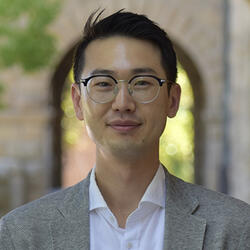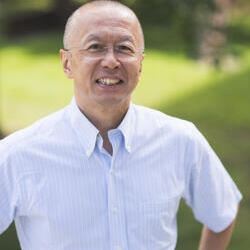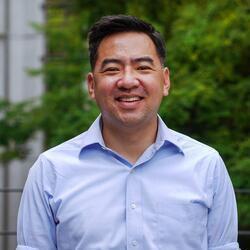The U.S. Alliance and Public Attitudes toward China: Evidence from the Asia-Pacific Region
The U.S. Alliance and Public Attitudes toward China: Evidence from the Asia-Pacific Region
Thursday, October 17, 20242:00 PM - 4:00 PM (Pacific)
Encina Hall, Third Floor, East Wing, E307
616 Jane Stanford Way, Stanford, CA 94305
This is part of Global Research Workshop series: Developing an Interdisciplinary Research Platform Toward ‘Next Asia’ co-sponsored by Stanford Global Studies.
Drawing on alliance and identity politics literature, this study shows that as the U.S-China rivalry intensifies, citizens of U.S. allies--but not those in non-allies--are more likely to view China with increasingly unfavorable attitudes. This is because the growing bilateral tensions can amplify public perception that their national security and values shared with their allies are threatened by China. Moreover, because the U.S alliance relationships can be reinforced as a perceptual foundation of shared identity during times of geopolitical crisis, public views toward China and the U.S. tend to be conversely related as the competition grows. The study tests our propositions in the Asia-Pacific region, where the U.S. has several allies and its tensions with China are most acute, using two datasets--Gallup World Poll (2006-2022) and Asian Barometer Survey (Wave 3-5). Based on empirical findings, this study offers theoretical implications for research on foreign public opinion as well as policy suggestions for the U.S., its allies, and China.
Presenter:

Gidong Kim is 2023-2025 Korea Program Postdoctoral Fellow at the Shorenstein Asia-Pacific Research Center. He holds a Ph.D. in Political Science from University of Missouri, an M.A. and a B.A. in Political Science from Hankuk University of Foreign Studies. He studies comparative political behavior and economy in East Asia, with particular focus on nationalism and identity politics, inequality and redistribution, and migration in South Korea and East Asia. His work is published or forthcoming in journals including Journal of East Asian Studies, Journal of Ethnic and Migration Studies, Asian Perspective, Korea Observer, and Social Science Quarterly.
Discussant:

Yusaku Horiuchi is a Professor of Government and Mitsui Professor of Japanese Studies at Dartmouth College. His research utilizes experimental designs and statistical methods to address diverse empirical questions in political science, particularly focusing on foreign/global public opinion, Japanese Politics, diversity, elections, and political methodology. He has published widely in top journals, including American Political Science Review, American Journal of Political Science, Journal of Politics, Political Analysis, and Science Advances, and authored two books. His research draws on data from Japan and other countries such as Australia, Israel, South Korea, the United Kingdom, and the United States. He holds an M.A. in international and development economics from Yale University and a Ph.D. in political science from MIT.

Paul Chang is Senior Fellow at Freeman Spogli Institute for International Studies; and Tong Yang, Korea Foundation, and Korea Stanford Alumni Association Senior Fellow at Shorenstein Asia-Pacific Research Center at Stanford University. Before joining Stanford, Chang was an associate professor of sociology at Harvard University. A sociologist by training, Chang's research on South Korean society has appeared in flagship disciplinary and area studies journals. He is the author of Protest Dialectics: State Repression and South Korea's Democracy Movement, 1970-1979 (Stanford University Press) and co-editor of South Korean Social Movements: From Democracy to Civil Society (Routledge). His current work examines the diversification of family structures in South Korea.
